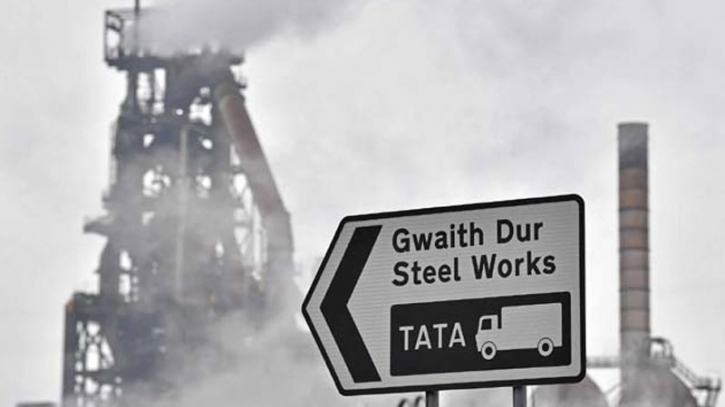Tata Steel to cut up to 2,800 UK jobs

Tata Steel is to cut up to 2,800 UK jobs, the Indian company announced Friday, as the industry transitions to greener production of the metal.
The company confirmed the closure of two blast furnaces at the Port Talbot steelworks in Wales, according to a statement.
It added that "Port Talbot's two high-emission blast furnaces and coke ovens would close in a phased manner" in 2024.
"Up to 2,800 employees are expected to be potentially affected" by restructuring at the company, including 2,500 roles over the next 18 months, the statement said.
A spokesman told AFP the "vast majority" of job losses would be in Port Talbot. Tata Steel employs about 8,000 staff in the UK.
Towards the end of last year, the UK government provided €500 million ($634 million) to fund the production of "greener" steel at the country's biggest steelworks, while saying that 3,000 jobs were still at risk.
"The course we are putting forward is difficult, but we believe it is the right one," Tata Steel's chief executive T V Narendran said in Friday's statement.
"Our ambitious plan includes the largest capital expenditure in UK steel production in more than a decade, guaranteeing long-term, high-quality steel production in the UK and transforming the Port Talbot facility into one of Europe's premier centres for green steelmaking."
Port Talbot steelworks is the UK's single biggest carbon emitter, and the government has been looking to help Tata Steel and British Steel, run by Chinese group Jingye, to replace dirty blast furnaces.
The Mumbai-based conglomerate had threatened to shut the plant unless it received state aid to help decarbonise production and cut emissions.
The government said replacing the coal-powered blast furnaces at the Port Talbot site would reduce the UK's carbon emissions by about 1.5%.
Experts have said green hydrogen could help the massively polluting steel industry, but producing the clean energy in large enough quantities requires significant investment.
As well as climate fallout, the steel sector has seen costs soar amid surging energy prices in the wake of Russia's invasion of Ukraine.
.png)




